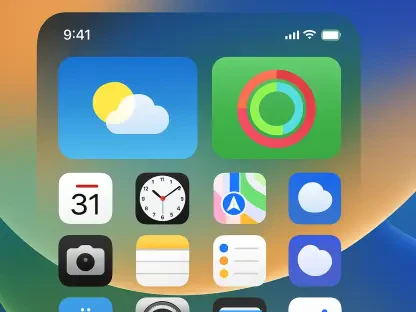In a world where digital innovation often seems reserved for the tech-savvy or financially privileged, Pi Network has carved out a unique space by making cryptocurrency accessible to anyone with a smartphone, transforming from a simple mobile app for mining digital currency into a sprawling decentralized ecosystem with over 55 million users globally. This remarkable growth signals a shift not just in how people engage with crypto, but in how digital value itself is perceived and utilized. Pi Network stands at the forefront of this change, leveraging its native token, Picoin, to empower communities and drive real-world impact. From financial inclusion to shaping the future of the internet, the platform’s ambitions are as vast as its user base.
This exploration delves into the journey of Pi Network, highlighting its evolution from a simple tapping mechanism to a powerhouse in the Web3 landscape. The focus isn’t merely on technology but on the tangible benefits it offers, such as reducing transaction costs and fostering economic equity. With a foundation built on accessibility, the platform ensures that participation remains within reach for millions, regardless of their background or resources. As Pi Network continues to expand, its commitment to user empowerment and community-driven progress sets a new standard for what cryptocurrency can achieve in today’s digital age.
The Roots of Accessibility
Democratizing Crypto with Mobile Mining
Pi Network’s defining strength lies in its mission to strip away the barriers that have long kept cryptocurrency out of reach for the average person. Unlike traditional mining operations that require costly hardware and deep technical expertise, this platform allows users to mine Picoin directly from their smartphones with just a few taps. This mobile-first approach has proven revolutionary, enabling individuals from diverse backgrounds—especially in regions with limited access to advanced technology—to participate in the digital economy. By maintaining this ease of entry, Pi Network ensures that building wealth through crypto isn’t a privilege reserved for a select few, but an opportunity open to millions around the globe. The simplicity of the process continues to resonate, drawing in users who might otherwise be excluded from such innovations.
This accessibility extends beyond just mining, creating a ripple effect that fosters economic inclusion on a massive scale. For many in underserved communities, the ability to engage with Picoin offers a gateway to financial tools that were previously unimaginable. The platform’s design prioritizes minimal resource use, meaning even those with basic devices can join without worrying about battery drain or data costs. Additionally, educational resources provided within the app help newcomers understand the basics of blockchain and digital currency, empowering them to make informed decisions. This focus on lowering entry thresholds not only builds a diverse user base but also strengthens the network’s foundation by ensuring that growth is inclusive and sustainable for all involved.
Bridging the Digital Divide
Beyond the mechanics of mobile mining, Pi Network addresses a broader challenge: the digital divide that separates those with access to technology from those without. By leveraging smartphones—devices already ubiquitous even in remote areas—the platform bypasses the need for expensive infrastructure, making crypto participation feasible for people in developing regions. This strategy has led to a user base that spans continents, with pioneers from varied economic backgrounds contributing to the network’s vibrancy. The impact is profound, as individuals who once lacked access to global financial systems can now engage in transactions and savings mechanisms through Picoin, leveling the playing field in ways traditional banking never could.
Equally significant is how this bridging of gaps fosters a sense of global community among users. The platform encourages interaction and collaboration through shared goals, such as increasing Picoin adoption or supporting local initiatives. Regular updates and transparent communication from the development team keep users informed, ensuring that even those new to technology feel included in the journey. This connectivity not only amplifies the network’s reach but also builds trust, as users see their contributions directly influencing the ecosystem’s growth. By prioritizing such inclusivity, Pi Network redefines what it means to participate in the digital age, proving that technology can be a unifying force rather than a divisive one.
Web3 Integration and Decentralized Future
Building a User-Owned Internet
Pi Network is carving a pivotal role in the emergence of Web3, an internet paradigm where user ownership and decentralization take center stage over corporate control. The platform’s ecosystem now encompasses a range of decentralized applications (dApps) tailored for commerce, governance, and social engagement, alongside validator nodes that ensure network security and integrity. Cross-chain interoperability further enhances its reach, allowing seamless interaction with other blockchain systems. This infrastructure isn’t built for mere technical showcase; it’s a deliberate effort to empower users by giving them control over their data, transactions, and digital interactions, aligning with the core ethos of a user-centric internet that prioritizes autonomy.
The significance of this shift cannot be overstated, as it moves away from the centralized models that dominate today’s web, where a handful of entities hold sway over personal information. With secure wallets integrated into the platform, users can manage their Picoin and digital assets without relying on third-party intermediaries, reducing risks of data breaches or exploitation. Moreover, the governance structures within Pi Network allow community members to have a say in key decisions, fostering a sense of ownership that is rare in traditional tech spaces. This alignment with Web3 principles positions the platform as a leader in crafting a digital environment where power is distributed, not hoarded.
Empowering Through Decentralized Tools
A deeper look into Pi Network’s Web3 integration reveals a suite of tools designed to maximize user empowerment and practical utility. Decentralized finance (DeFi) offerings, such as lending platforms and staking opportunities, enable individuals to grow their holdings or access liquidity without the constraints of conventional financial institutions. These tools are supported by smart contracts that automate processes transparently, minimizing the need for middlemen and reducing associated costs. For users unfamiliar with such concepts, the platform provides intuitive interfaces and guides, ensuring that even beginners can navigate these advanced features with confidence.
Additionally, the focus on community-driven dApps showcases how decentralization fuels innovation tailored to real needs. Developers within the network create solutions ranging from peer-to-peer marketplaces to voting systems, all built on the principle of user control. These applications are not just theoretical; they are actively used by pioneers to solve local challenges, whether it’s facilitating small business transactions or organizing community projects. The validator node system further strengthens this ecosystem by allowing dedicated users to contribute to network stability, earning rewards in return. This multifaceted approach to decentralization underscores Pi Network’s commitment to building a future where technology serves the many, not the few.
Real-World Solutions and Financial Inclusion
Tackling Global Challenges
Pi Network’s ambitions extend far beyond the realm of technology, targeting pressing global issues like the inefficiencies of cross-border payments. Traditional remittance systems often burden users with high fees and slow processing times, disproportionately affecting those who rely on these transfers for their livelihoods. By utilizing Picoin as a medium of exchange, the platform offers a solution that drastically cuts costs and speeds up transactions, ensuring that more money reaches its intended recipients. This initiative holds particular promise for migrant workers and families in developing nations, where every dollar saved can make a significant difference in daily life.
The broader vision of financial inclusion drives these efforts, aiming to reach populations excluded from conventional banking systems. Millions lack access to savings accounts, loans, or even basic payment methods due to geographic or economic barriers, but Pi Network’s mobile platform circumvents these obstacles. With just a smartphone, users can store value, send payments, and engage in commerce, effectively creating a parallel financial system that operates without the gatekeepers of traditional finance. This accessibility transforms lives by providing tools for economic stability, demonstrating that digital currency can be a force for equity on a global scale.
Innovating with DeFi Solutions
Delving into the specifics of financial empowerment, Pi Network’s foray into decentralized finance (DeFi) stands out as a game-changer for those underserved by traditional systems. Through DeFi protocols, users gain access to lending and borrowing facilities, allowing them to secure funds for personal or business needs without navigating the red tape of banks. Staking mechanisms also enable individuals to earn passive income by locking up their Picoin, offering a way to build wealth over time. These features are designed with transparency in mind, utilizing blockchain technology to ensure that every transaction is verifiable and secure.
What makes this particularly impactful is the platform’s dedication to user education alongside innovation. Recognizing that DeFi can be daunting for newcomers, Pi Network integrates tutorials and support systems to demystify concepts like yield farming or liquidity pools. This ensures that even those with minimal financial literacy can participate and benefit. Furthermore, decentralized exchanges within the ecosystem allow for direct trading of Picoin and other assets, cutting out costly intermediaries. By blending cutting-edge tools with a user-friendly approach, the platform not only addresses immediate financial needs but also equips users with the knowledge to thrive in a digital economy.
Community Power and Innovation
Pioneers Driving Progress
At the core of Pi Network’s success is its vibrant community of pioneers, who serve as much more than passive users—they are active architects of the platform’s growth. These individuals drive local adoption by encouraging merchants to accept Picoin as payment, creating a tangible presence for the currency in everyday transactions. Beyond commerce, pioneers organize educational campaigns to spread awareness about blockchain and digital assets, helping to onboard new users. Their efforts in developer hackathons also yield innovative dApps that address specific community needs, ensuring that the platform evolves in step with its users’ priorities.
This grassroots momentum is amplified by the platform’s structure, which rewards participation and fosters collaboration. Pioneers are incentivized to contribute through governance roles, where they influence decisions on network updates or policy changes, giving them a direct stake in the ecosystem’s direction. The sense of ownership this creates is palpable, as users see their input shaping outcomes, from local merchant partnerships to global initiatives. By empowering its community in this way, Pi Network builds a resilient foundation where progress isn’t dictated from the top down but emerges organically from the collective will of its members.
Fueling a Creative Economy with NFTs
Another dimension of community-driven innovation is Pi Network’s embrace of non-fungible tokens (NFTs), which opens new avenues for artists and creators to monetize their work. Through digital marketplaces built on the platform, individuals can mint, buy, and sell unique digital assets, ranging from artwork to virtual collectibles, with transactions secured by blockchain technology. Smart contracts ensure that creators receive fair royalties on secondary sales, addressing a long-standing issue in traditional creative industries where artists often lose out on future earnings. This model not only supports talent but also democratizes access to the creative economy.
The impact of NFTs within the ecosystem extends to fostering cultural exchange and community engagement. Pioneers curate collections and host virtual galleries, creating spaces where art and technology intersect. These initiatives are bolstered by the platform’s low transaction fees, making participation affordable compared to other NFT platforms that often charge prohibitive costs. By integrating such features, Pi Network taps into the growing interest in digital ownership while ensuring that the benefits are accessible to a wide audience. This focus on creativity highlights how the platform’s community continues to push boundaries, turning abstract concepts into concrete opportunities for expression and income.
Reflecting on a Transformative Journey
Looking back, Pi Network’s evolution from a modest mobile mining app to a sprawling decentralized ecosystem marks a significant chapter in the history of cryptocurrency. What started with simple taps on a smartphone grew into a movement that empowered over 55 million users to engage with digital value in meaningful ways. The platform’s dedication to accessibility, seen in its mobile-first design, dismantled barriers that once kept crypto exclusive, while its integration into Web3 laid the groundwork for a user-owned internet. Each step, driven by a passionate community of pioneers, reflected a commitment to solving real-world problems, from remittance inefficiencies to financial exclusion.
Moving forward, the focus should shift to sustaining this momentum through continued user education and robust security measures. Encouraging pioneers to complete KYC verification and secure their wallets will be vital in maintaining trust as the network scales. Expanding partnerships with local businesses to accept Picoin can further embed the currency into daily life, while investing in scalable infrastructure will support growing demand. These actionable steps, paired with ongoing innovation in DeFi and NFTs, position Pi Network to not only adapt to emerging challenges but to lead in redefining how digital economies can serve humanity at large.









